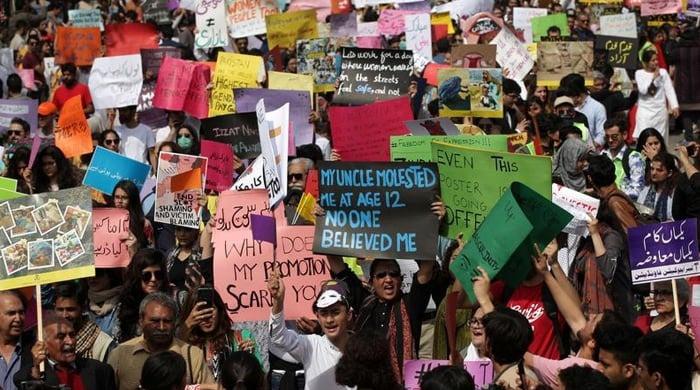Pakistan’s Ranking in Global Gender Gap Report 2025
Pakistan has been ranked last in the World Economic Forum’s Global Gender Gap Report 2025, securing the 148th position out of 148 countries.
The report, which came out on Wednesday, gave Pakistan a gender parity score of 56.7%, which is a 0.3 percentage point decrease from its 2024 score.
This is the second time in a row that Pakistan’s score has gone down, after it reached its highest point of 57.7% in 2023. The Global Gender Gap Index looks at how equal genders are in four main areas: how much they participate in the economy and the opportunities they have, how much education they get, their health and how long they live, and how much political power they have.
Even though Pakistan is at the bottom of the list, it has only dropped three places from last year’s ranking of 145th. Iceland is still in first place. In South Asia, Bangladesh is the highest-ranked country at 24th in the world, while India is 131st overall and fifth in the region.
Since it started in 2006, the index has been tracking how well different countries are doing in closing gender gaps and moving towards gender equality.
Despite recent declines and its bottom ranking in this year’s report, Pakistan has reduced its gender gap by +2.3 since 2006. The only area where Pakistan improved this year is in ‘Educational Attainment’, where it increased educational parity by +1.5 percentage points to 85.1%.
The report says that this improvement is partly due to an increase in female literacy rates (from 46.5% to 48.5%). However, parity has also increased because fewer men are enrolling in higher education, which has made the balance between men and women better, but has also reduced the overall reach of education.
Pakistan is ranked 137th out of 148 countries in the ‘Educational Attainment’ subindex, and its highest subindex rank is in ‘Political Empowerment’ at 118th.
However, Pakistan’s score in ‘Political Empowerment’ has decreased from 12.2% in 2024 to 11% this year. Despite having more parity in parliament, the country was mentioned as one of the countries with all-male ministerial cabinets.
The country’s best score is in the ‘Health and Survival’ subindex at 95.9%, and it scored 34.7% in ‘Economic Participation and Opportunity’. The report indicates that income differences in Pakistan have grown slightly since the last report (+.02 points), as has the perception of wage inequality (+4 percentage points).
Overall, the report finds that there is still a combined global average gender gap of over 30% in the four areas it examines. The global gender gap score for 2025 for all 148 economies in this edition of the index is 68.8%, a slight increase from 68.4% in 2024.
In her comments on this year’s report, WEF Managing Director Saadia Zahidi stated that it “comes at a crucial time, with the world facing many changes. Technological advancements, geopolitical tensions, and economic instability are creating significant challenges and new opportunities. In this changing environment, gender parity is both a fundamental principle and a strategic advantage.”
According to the managing director, “Countries that fully utilize their talent and human capital are in the best position to navigate this era of transformation and boost productivity and prosperity. However, most countries are not fully using this pathway for growth”.



Comments (0)
No comments yet. Be the first to comment!
Leave a Comment